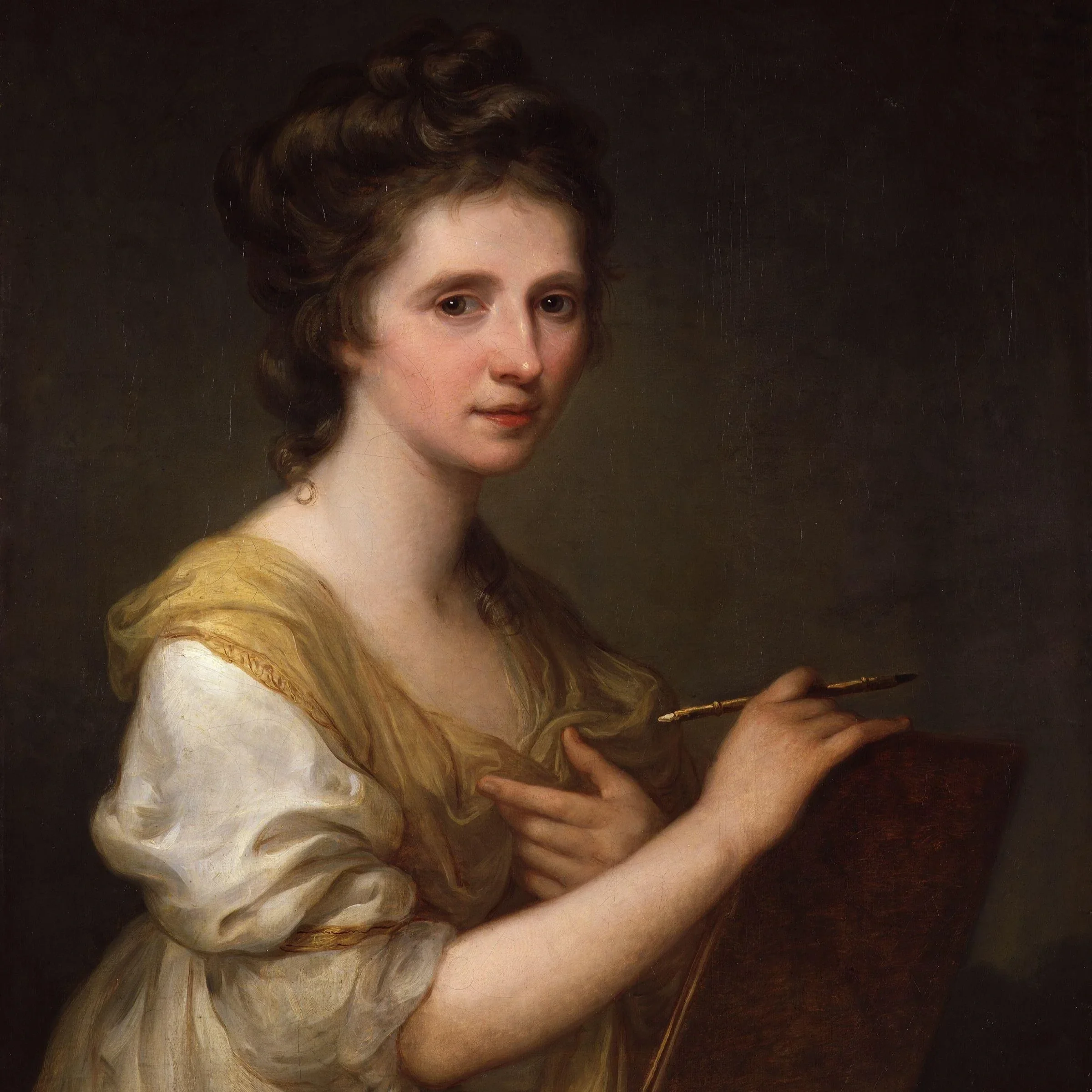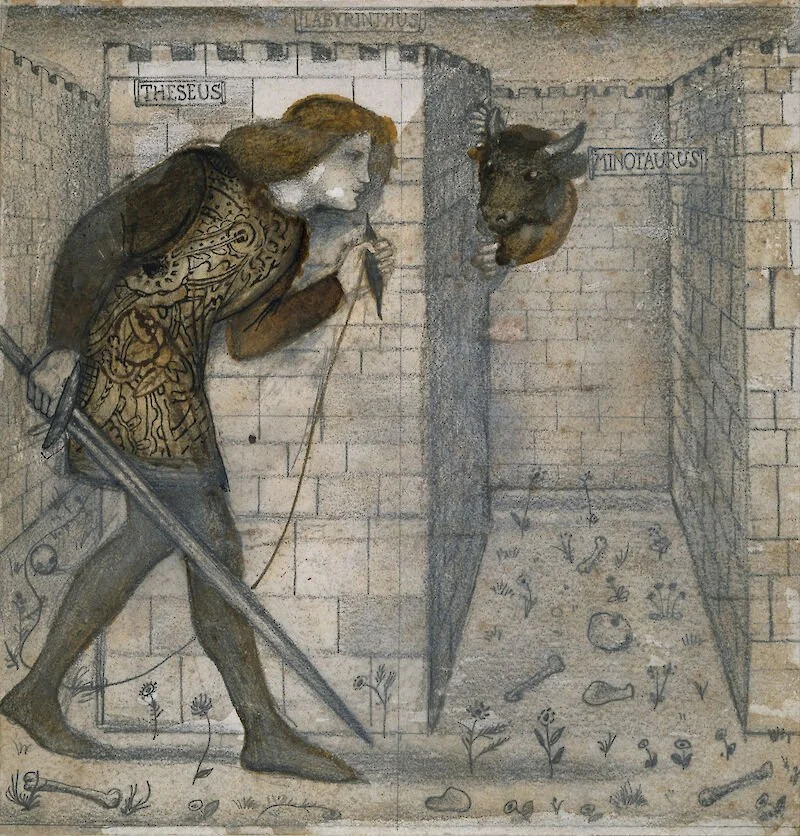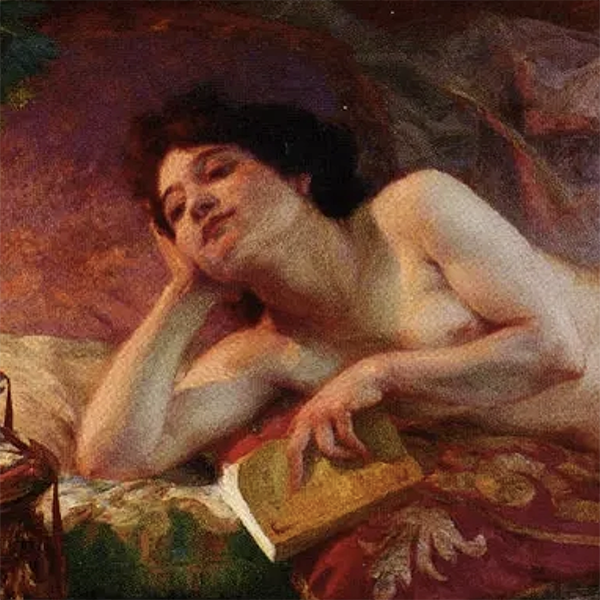85 Romance Reads Later - What I've learned (and Loved)
I didn't plan to read 85 romance novels this year. But somewhere between monster kisses and slow-burn enemies-to-lovers, I found myself changed.
Young Woman Reading - Jean-Honoré Fragonard, 1775
As my nervous system struggled to calm down from several months of hypervigilance and stress over the exhaustive life and death experiences I had in 2024, my friend suggested I read Sarah J. Maas' series ‘A Court of Thorns and Roses' (a.k.a. A.C.O.T.A.R.) Swallowing the five books from the ACOTAR series whole within two weeks was akin to Peter Parker being bitten by a genetically altered, radioactive spider and becoming Spider-Man. (Does that make me Romance Spider-Woman?) Regardless, reading the ACOTAR series rekindled my love for reading with a gusto that I haven't experienced since my adolescent years.
Five books became eighty-five (85!!!). I, the hardcore non-fiction reader, fell hard for romance books' spell, living my favorite trope of enemies-to-lovers! Romance has got me tickled fancy, and I am enjoying this wild ride of pleasure and self-discovery.
Plus, I never imagined that diving headfirst into the enchanting currents of those stories would gift me a lifeline to guide me through the liminal space of grief towards life's new chapter.
Tucked between the seductive covers of the monster, fantasy, paranormal, and contemporary romance novels I read, I found stories of self-reinvention, grief, rebirth, and love. These stories have stirred embers of my creative desires that I had long thought done and buried. (Creating this Substack is one way that I'm stoking this creative desire.)
It's common knowledge that books are portals into other worlds. But our relationship with reading doesn't have to be one-sided - authors write and we consume. Instead, reading is as relational as the very romantic stories inside them.
These stories court and woo us to explore, question, and wonder about our lives—both inner and outer. It may answer questions we didn't know we had, but more excitingly, it may raise questions that lead us to yet-unexplored and enticing corners of our imagination and desires.
The Progress of Love: Love Letters - Jean-Honoré Fragonard - 1771–1772
Falling in love with tropes and happy endings
Being the Gemini that I am (with four planets in the Twins sign, thank you very much), I not only read two or three books at once, but I also read them from two levels of perception. One twin is entertained by the twists and turns of the story, while the other soaks up the archetypal patterns.
And on brand for a Gemini, my twins maintain a constant inner dialogue, volleying questions back and forth about my reactions to the stories, as well as what these reveal about our current zeitgeist.
Seeing that Romance and its many sub-genres are having a cultural moment, my curiosity is piqued; thus, the impulse to create The Healing Power of Fluff.
But what have I learned about myself in my surrender to Romance?
At times, being in my 50s, married for several years, and reading romance seems anachronistic. I had the 'meet-cute' and got the 'happy-ending', and I'm most definitely not a young (virginal) woman, who is often the female main character in many romance/romantasy novels. (A female main character in her 40s is considered age representation! And those books are few and far between!)
Self-Portrait - Angelica Kauffmann - 1775
The Virginal Youth & Vitality
While the age aspect annoys me at times (another 18-year-old virgin heroine, really?), I see it as a symbolic link to our inner youth. The virginity element can reflect an aspect of ourselves that is yet untouched, but is ready to be in relationship with what is rising in our psyches.
For me, the pleasure and joy that reading these books gives me is taking me back to the unspoiled pleasure I had in reading from when I was a kid up to my mid-late 20s. Those were the years when I read more fiction, allowing my imagination free rein. But as life and work took over, I found myself solidly in the camp of being a non-fiction reader. Nevertheless, while my love for reading never left me, I now realize that immersing myself in romantic novels is reconnecting me to that youthful part of me that basked in letting my imagination run wild.
Perhaps romance novels are leading me to reclaim the frisson of falling in love that my younger self felt, thus imbuing my perimenopausal imagination with renewed vitality.
Blind Man’s Bluff - Jean-Honoré Fragonard - 1750-1752
Breaking the Spell of Coping Mechanisms
Another aspect that has regained centrality in my mind is the joy my child self felt when exposed to the fullness of transformation in fairy tales. Then and now, what stokes me isn't so much the sense of completeness that a happy ending in fairy tales gives, but it's the excitement I feel in seeing a character break the enchantment and go from monster to prince/princess.
The enchantment is an adopted coping mechanism that made sense at a particular time in our lives, but now hinders our growth. Alternatively, it is a stage in our development that, for a certain period, was necessary, but if it doesn't shift, it will keep us developmentally stuck.
Again and again in these books I've been reading, the characters face several trials and tribulations, ultimately making the final transformation—the breaking of the enchantment—an orgasmic release of all the inner and outer resistant tension we experienced through them. And perhaps this release isn't just for the characters, but also for an aspect of ourselves, helping us chip away at our own resistance.
The character transformation in these stories carries a catalytic spore that takes root in us and works in the background to help us break from the spell of our own resistance to change.
As I journey through grief, adrift in this liminal landscape, I'm slowly letting go of the old ways I imagined how I should be and do. In my own way, like the monsters in my books, I'm molting into something else, while reclaiming aspects of myself that I hid in the basement of my psyche.
The Progress of Love - The Lover Crowned - Jean-Honoré Fragonard - 1772
Happy Endings aren't lazy - They're a Culmination
The thing about romance novels that my intellectual self pooh-poohed for years is how it all wrapped up in a neat bow in the end. It wasn't sophisticated; it felt simplistic. However, now I see it with fresh eyes.
The happy ending provides us with emotional and psychological reassurance, a measure of comfort, and hope that good ultimately prevails. In these collective liminal times, hope and comfort are essential to help us keep the windows of our creative imagination open, rather than shutting down from the body snatchers of fear.
I think of 'happy endings' as the final stage in Alchemy, called the 'Coniunctio', a Latin term meaning 'union', which represents the sacred marriage of opposites. The portrayal of the King and Queen's marriage is representative of this alchemical stage.
Psychologically, it represents the coming together of aspects of our inner psyche. Much like the many romantic tropes (i.e., enemies-to-lovers; strangers-to-lovers; forced proximity; etc.), the engagement, wedding, or 'I-love-yous' of these books, reveal our psychological need to conjoin conscious and unconscious aspects in our own (inner & outer) lives.
The 'King' and 'Queen', much like the main female and male characters, are stand-ins for our own Masculine/Solar and Feminine/Lunar selves, both meant to come together after going through several stages of transformation, similarly to alchemy with its many stages that lead up to the final union.
With each happy ending I read, I hope that disparate aspects of my psyche are coming together. Because I feel that as I crossed this threshold of death and grief into this liminal landscape of 'what was, and what is yet to be', it was like a bomb went off inside of me and brought to the ground many of the 'arranged' ideas I had about who and what I need to be and do. This is my current work-in-progress, and I'm grateful for the company that romance novels are providing me.
Theseus and the Minotaur - Edward Burne-Jones - 1861
Monsters, it turns out, are mirrors.
Of the 85 novels I've read so far, the monster romances are the chef's kiss for me. At first, I thought it was because my favorite fairy tale has always been Beauty & the Beast, so anything that carries this trope, I'm a 'hell yeah'!
While I have a lot more to say about monsters, more on these in later articles, one thing that I have been learning from these monsters is about instinctual knowing. I find that what gets me every time in these monster romances is how the 'monster', the ultimate Other, is viscerally certain of their desire and want. Their animalistic instinct prevents them from falling under the oft-misleading spell of the mind's rationales.
The monster will sense past the excuses and the words. Words may try to masquerade the desire, but the monster smells the want and need underneath it all. I love how the monster shows us how to be attuned to our needs and desires, and to be embodied. The body for the monster isn't an afterthought; it's integral to who they are. They know what they want, need, and how to achieve it, not by following their mind alone, but by embodying both mind and body in their pursuit of what they desire.
Monsters have a 'hell, yes' response to life. For them, the body is the compass, pointing to their truth, while the mind is the strategic map to help them achieve what they want. It's a collaborative partnership, not a power-over relationship between mind and body.
As I've often felt adrift this year, I found myself wanting to have the clarity of the monsters' instinctual knowing. In a way, these monsters are helping me pay closer attention to my body's response to what's coming my way; learning to differentiate 'a-hell-yes' from the shoulds/oughts/coulds that often cloud my decision making.
The Last Page of the Novel - Ernest Édouard Martens - 1903
For Your Pleasure - Fluff Reads
While I'm having a lot of fun immersing myself in all of these romantic worlds, I also miss having others to discuss the impressions, ideas, and questions that have also arisen. My husband, whom I love dearly, is a champ and has taken to being my 'book club of one' in stride.
While he's not a reader, he's willing to listen to me and discuss these novels, including the plot frustrations, character arcs, and the questions I have about what these tropes/themes reveal about our current zeitgeist. Additionally, reading these books has further enriched our conversations, making them even more enjoyable. I love taking in his impressions, questions, and insights.
Nevertheless, I miss being able to talk to others who read Romance, or have read some of the same books I have. This is where you come in.
For Your Pleasure - Fluff Reads - A Gentle Invitation
For Your Pleasure - Fluff Reads is a soft, asynchronous reading salon for romance lovers.
There's no assigned book, no pressure to keep pace—just a shared space where we read what delights us and reflect together.
Whether you're into monster romance, cozy small-town tropes, or slow-burn longing that aches in all the right ways, you're welcome here.
Together we will explore:
What we like and don't like about the romance genre in general, or our current read
The tropes that thrill us (or make us roll our eyes)
The questions that arise—not just about the genre, but more importantly, about ourselves.
While the books are the instrument, the intention behind For Your Pleasure - Fluff Reads is about exploring with curiosity: pleasure, and the stories that transform us.
How would it work on Substack?
I'll post a Chat thread with a gentle prompt—something like "What's a romance trope always gets you?" or "What did your last read teach you about yourself?"
You can reply directly in the thread, and the conversation stays cozy and contained.
You can join in anytime—while lurking is a normal first stage, participation is where it's at, as it enriches the experience. Kindness, of course, is non-negotiable.
If you've ever read a romance that made you feel seen—or curious, or just wildly entertained—I'd love to read alongside you.
For Your Pleasure - Fluff Reads is a soft space for pleasure, reflection, and story.
Can't wait to meet you there!
May the Fluff be with you.
Vanessa Couto






